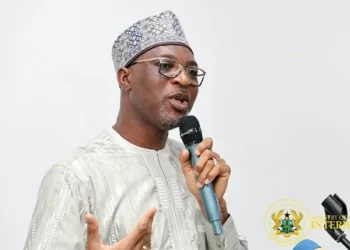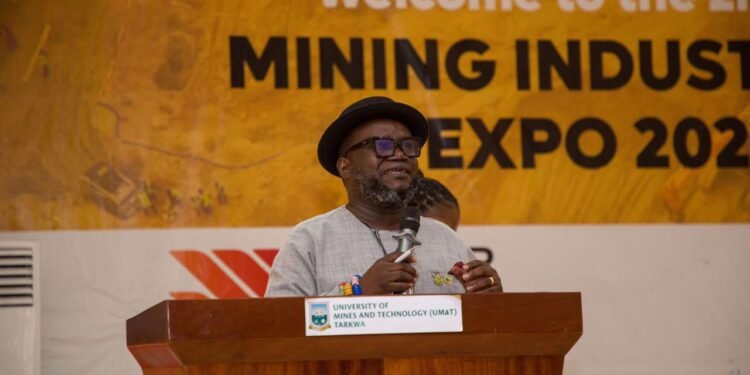Precisely ten years ago, on the evening of June 3, 2015, Accra experienced one of the most catastrophic disasters in its history: a deadly flood and fire combination that destroyed properties valued at millions of cedis, killed over 150 people, and injured countless more.
The tragedy, which happened close to the GOIL gas station at Kwame Nkrumah Circle, still haunts survivors and the country because of the agony it caused as well as the eerie silence that followed.
The results of the committee that was established to look into the reasons behind the catastrophe and suggest remedies have never been made public, even after ten years have passed.
This lack of transparency and accountability has drawn sharp criticism from stakeholders, including Professor David Millar, President of the Millar Institute of Transdisciplinary and Development Studies, who spoke to Vaultz News during the commemoration of the tragedy.
Expressing deep frustration, Professor Millar stated it was “utterly unfathomable” that a disaster of such magnitude has not been followed by a public release of the committee’s report. “Was there not a committee set to come up with the report on the situation? So what does that report say?” he asked rhetorically.
He recalled that the committee, comprising members from the Ghana National Fire Service, the National Disaster Management Organisation (NADMO), and other relevant agencies, was tasked with investigating the root causes and identifying actionable recommendations. Yet to date, the report has remained under wraps.
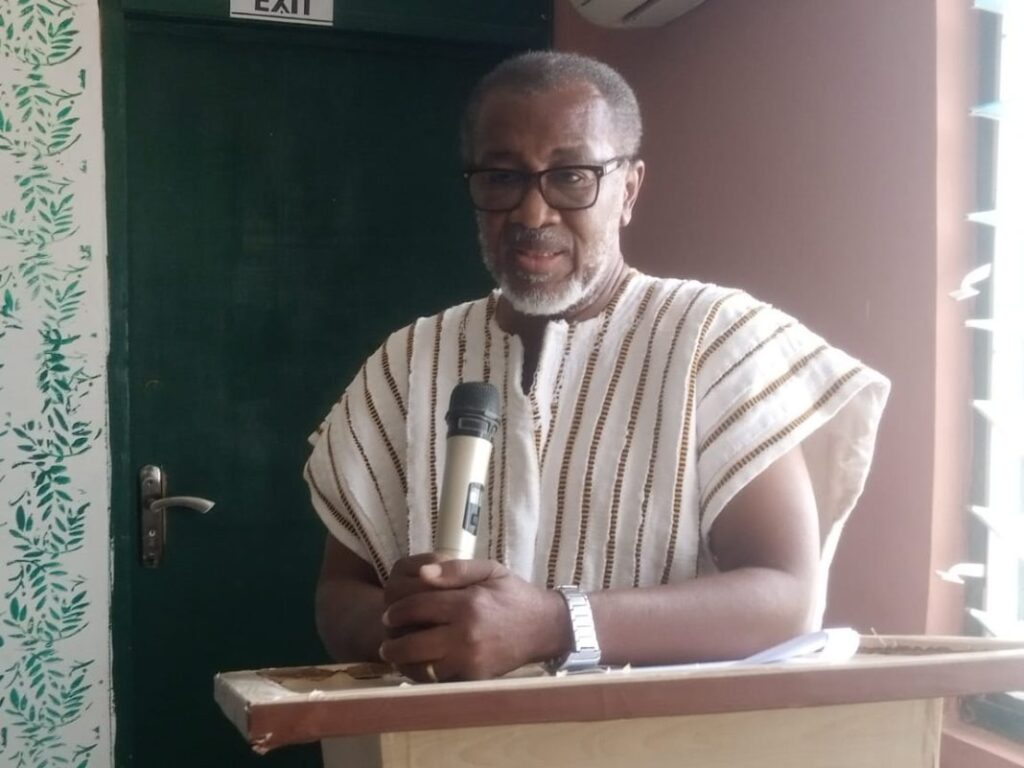
According to Professor Millar, the refusal or failure of successive governments to release the report raises serious concerns about Ghana’s readiness to prevent similar disasters in the future.
“We are set for another disaster one day if not this year, because the floods are still occurring and the underground fuel tanks, they’re still leaking”.
Professor David Millar, President of the Miller Institute of Transdisciplinary and Development Studies
He explained that when there is pressure underground and rainwater mixes with leaking fuel, the resulting combination can be highly flammable and deadly — a scenario strikingly similar to the 2015 disaster.
Governments’ Silence
Professor Millar lamented the lack of communication from successive governments concerning whether compensation has been paid to victims or whether preventive measures have been put in place.
“I remember I saw one of those victims who was badly burnt and begging on the street; they won’t give him anything, because his face didn’t look like he was friendly enough for anybody to dish into his pocket and give him something”
Professor David Millar, President of the Miller Institute of Transdisciplinary and Development Studies
The neglect experienced by survivors like this man, he argued, exemplifies the indifference of the state to those who continue to suffer the aftermath of the catastrophe.
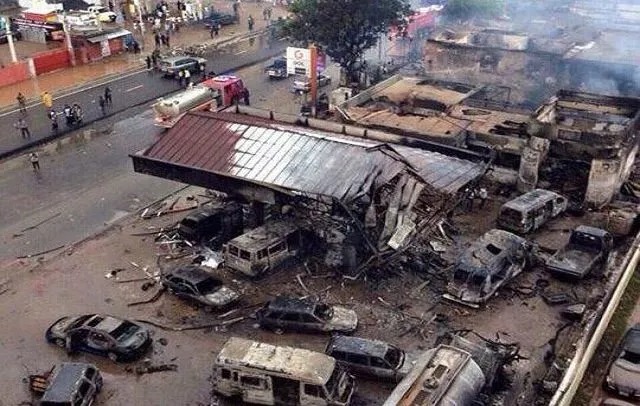
However, Professor Millar expressed a glimmer of hope in the current administration, noting that it has shown some responsiveness to disaster-related issues, albeit belatedly.
He cited the recent compensation efforts following the Akosombo Dam spillage and electoral violence incidents. According to him, the June 3rd disaster victims deserve similar closure and support.
Professor Millar was emphatic about the role of the media in reigniting public interest and ensuring the government is held accountable.
He called on the media, as the fourth estate of the realm, to take the lead in demanding the publication of the report and pushing for adequate compensation and policy action.
“If not, victims of the disaster will continue to suffer in their predicament because governments have not made any available provisions to cater for them and their families.”
Professor David Millar, President of the Millar Institute of Transdisciplinary and Development Studies
The fact that Ghana’s cities, especially Accra, continue to experience frequent floods is more evidence of the country’s failure to learn from the tragedy.
Unauthorised wetland development, inadequate urban planning, clogged gutters with plastic debris, and traffic in low-lying areas continue to endanger people’s lives and property.
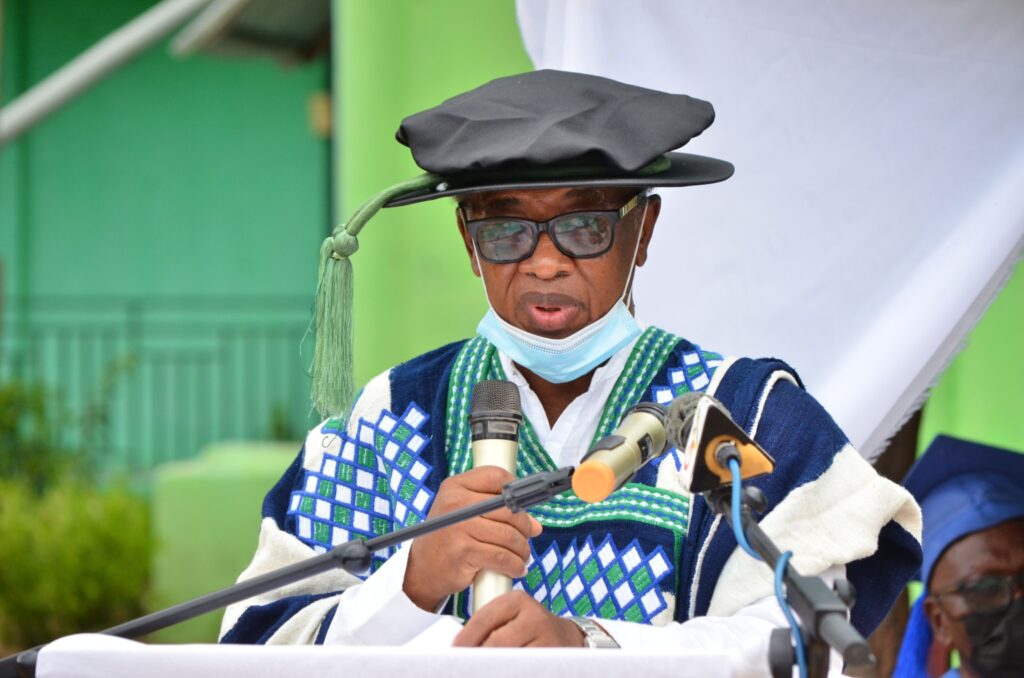
A heavy downpour that flooded many areas of Accra on June 3rd caused the disaster to start, forcing residents to relocate and halting daily activities.
Dozens of people gathered beneath the canopy of the GOIL fuel station near Kwame Nkrumah Circle to seek shelter from the rain. Sadly, the entire station and its environs were consumed by a firestorm that started when a leaking subterranean fuel tank combined with the floodwaters.
Those trapped were caught in a hellish blaze, unable to escape. The aftermath left a nation in mourning and sparked an outcry for better urban planning and emergency preparedness.
Yet, ten years after, it appears little has changed. For survivors and families of the deceased, the pain has not subsided.
Professor Millar’s passionate call for the release of the committee report and implementation of its recommendations could not have come at a better time.
His remarks call for a remembrance that must go beyond annual commemorations but be tied to responsibility and reform.
READ ALSO: GoldBod Pledges Full Traceability of Gold to Curb Illegally Mined Gold






